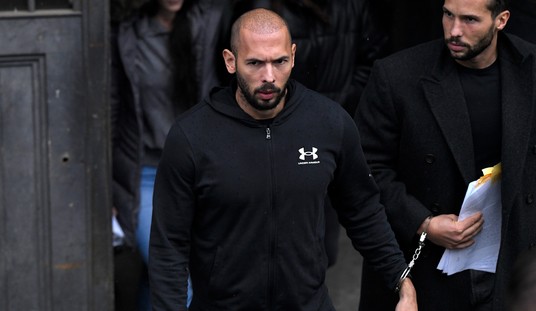The European Union will not follow the US move to evacuate diplomatic staff and families, largely because the US hasn’t explained why we’re doing it. “We don’t have to dramatize,” EU foreign policy minister Josep Borrell told the press today as European nations met to determine their path forward in confronting Russia over the crisis in Ukraine.
Borrell told reporters that Antony Blinken will brief the EU later, but at least as of this morning, they don’t see any threat to diplomatic facilities or staff:
Q. The fact that the Americans asked the families of the diplomats to leave Ukraine soon, does it mean that the war is very close?
Well, Secretary Blinken will explain us the reasons of this announcement. We are not going to do the same thing, because we do not know any specific reasons. But Secretary Blinken will inform us and I do not think we have to dramatise. As far as the negotiations are going on – and they are going on – I do not think that we have to leave Ukraine. But maybe Secretary Blinken has more information that he will share with us.
Q. The European Union personnel and their families will stay in Ukraine for now?
There is no decision about that now. Unless Secretary Blinken gives us information that justifies a move, it is not.
The Ukrainians vehemently agree with Borrell. Volodymyr Zelensky has already objected to the withdrawal of personnel and staff from the Kyiv embassy, calling it an “overreaction.” Other members of his government are less polite, if also more anonymous:
BuzzFeed News, quoting source close to Ukrainian President Volodymyr Zelensky:
“Americans are safer in Kyiv than they are in Los Angeles … or any other crime-ridden city in the US.”
— Breaking911 (@Breaking911) January 24, 2022
Ouch! Zelensky has it right; it’s an overreaction by the US to Joe Biden’s horrible “minor incursion” press conference. Zelensky and his administration expressed horror over Biden’s apparent “green light” to Vladimir Putin on Wednesday, and for good reason, especially in light of Putin’s 2014 incursions in Donbas and Crimea, not to mention the history of “minor incursions” in 1930s Europe. After the implications of Biden’s verbal diarrhea became clear, now the White House wants to show it’s taking the threat of Putin more seriously by essentially retreating and leaving Ukraine with less international support.
The EU, at least, seems to be taking a more credible and sensible approach to signaling, although they are still split on the specifics. They warned of a comprehensive spectrum of sanctions if Putin commits any incursion into Ukraine, and utterly rejects Putin’s demand that Ukraine surrender its sovereignty in terms of international relations:
The EU’s 27 foreign ministers, meeting in Brussels, said the bloc “condemns Russia’s continued aggressive actions and threats against Ukraine and calls on Russia to de-escalate.”
“Notions of ‘sphere of influence’ have no place in the 21st century … any further military aggression by Russia over Ukraine will have massive consequences and severe costs,” they said in a statement, giving no details of the “consequences”. …
Denmark said the EU would be ready to impose “never-seen-before” economic sanctions on Russia.
The European Commission, the EU executive body, proposed a 1.2-billion euro ($1.36-billion) financial aid package for Ukraine [L8N2U42SZ], but there are differences among EU member states about how hard to be on Russia.
Some of the lack of details comes from the fact that the members are fractured on the forms of the “massive consequences and severe costs.” Some are hoping to avoid energy-trade sanctions, as EU members have grown dependent on relatively cheap Russian gas and oil. However, there is something to be said for strategic ambiguity on this point too, a way to keep Putin guessing in the short run.
Nordstream 2 and SWIFT aren’t off the table, however, although some want those reserved for last-ditch escalations:
Asked about potential sanctions on the Nord Stream 2 pipeline from Russia to Germany, which is yet to win regulatory approval, Schallenberg said sanctioning something that is not yet operative was not a credible threat.
Another potential sanction would be cutting Russia off from the SWIFT global messaging system, but German Foreign Minister Annalena Baerbock said wielding the “hardest stick” may not always be the best way to deal with such a situation.
The EU may need to rethink that to firm up their posture; escalating after an invasion would be akin to locking the barn door after the colt has bolted. The best way to avoid a conflict is to effectively deter it before it happens. Putin will undoubtedly stay in place after a fait accompli regardless of an escalation of sanctions. But at least the Europeans are thinking strategically rather than reactively.







Join the conversation as a VIP Member